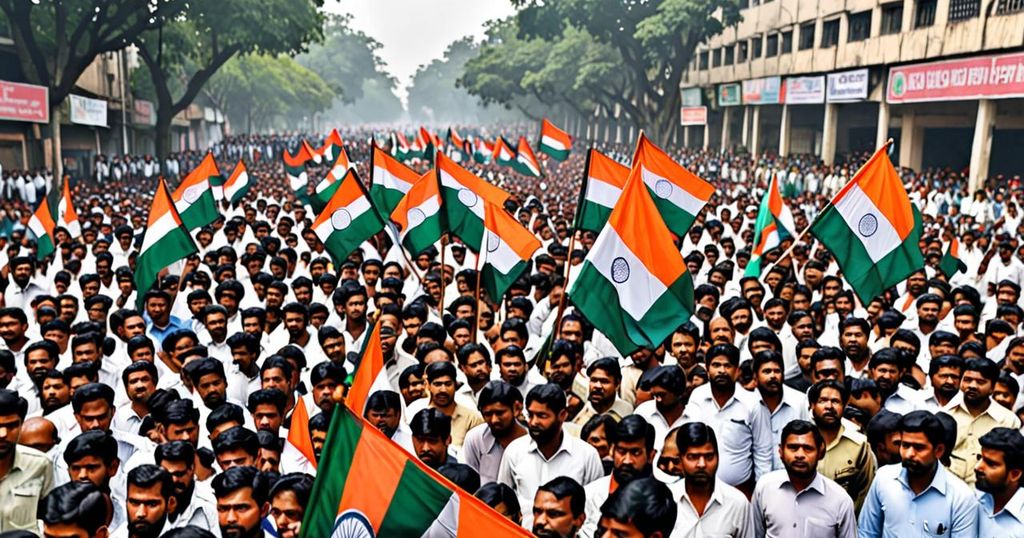The Consequences of Political Unrest in Bangladesh for India
The recent collapse of the Bangladeshi government carries potential implications for Indian Prime Minister Narendra Modi. This situation not only has significant geopolitical repercussions, but also serves as a warning to the Indian government, illustrating the increasing demand for employment opportunities and accountability from political leaders. The departure of Bangladeshi Prime Minister Sheikh Hasina, amidst protests and discontent with her autocratic rule, underscores the dissatisfaction of citizens in the region, despite her solid economic performance over the past decade.
While Prime Minister Modi has secured a substantial mandate and remains in his third five-year term, the Indian government is confronting its own challenges, particularly in addressing youth unemployment. Despite India’s economic growth, the issue of youth unemployment has persisted, further exacerbated by the impact of the Covid-19 pandemic. The disenchantment with the government has been evident, as democratic mechanisms are failing to provide the necessary channels for public expression and engagement.
The situation in Bangladesh should prompt the Indian government to reflect on its own policies and practices. While Modi’s return to power has brought some changes, there are ongoing concerns regarding the democratic process, the treatment of political opponents and critics, and the status of minority groups within the country. On the economic front, there are growing demands for the government to directly address the issue of youth unemployment, rather than relying solely on trickle-down economics.
Both India and Bangladesh are categorized as “electoral autocracies” by the V-Dem Institute, presenting a common challenge for the governments of both countries. The broader economic landscape of the region also reflects similarities, with both nations facing issues of youth unemployment despite pursuing different economic paths. With both countries falling into the middle-income trap, it is clear that there is a pressing need for substantial reform and investment in infrastructure and education to stimulate economic growth and opportunity.
The turmoil in Bangladesh also has broader implications, serving as a reminder for India to carefully consider its policy direction and approach to economic development. The experiences of other nations, such as South Korea, offer valuable insights into successful economic transformation. By investing in infrastructure and research and development, South Korea managed to significantly improve its economic standing and sophistication, ultimately transitioning into a democratic society.
India should take heed of these lessons and work to align its policies and strategies with the changing global economic landscape. It is essential to create a conducive environment for investment and technological advancement, while also addressing the challenges faced by the youth in securing meaningful employment opportunities. As the region grapples with political and economic uncertainties, it is imperative for India to navigate these challenges with an informed and proactive approach.
In conclusion, the recent events in Bangladesh serve as a cautionary tale for India, urging the government to prioritize economic reform, youth employment, and democratic accountability. By learning from the experiences of other nations and embracing a more inclusive and dynamic policy approach, India can position itself for sustainable and inclusive growth in the years to come.








Post Comment